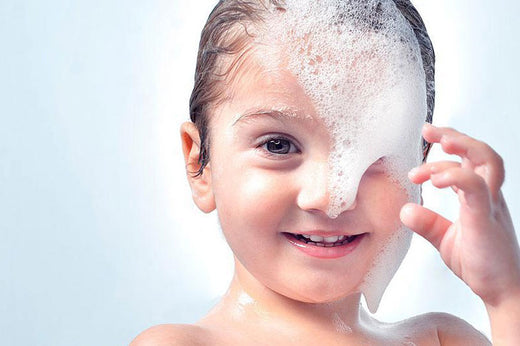
Struggling with sinus congestion or relentless allergies can turn your day into a battle against stuffiness and discomfort. If you’re weary of medications that leave you drowsy or dry, a baby shampoo rinse might be the gentle, natural remedy you’ve been seeking. This article dives into how this ENT-approved method can ease sinusitis, soothe allergies, and even bolster your defenses against respiratory infections—perfect for sinusitis sufferers, allergy-prone individuals, and health enthusiasts alike.
What is a Baby Shampoo Rinse?
A baby shampoo rinse blends a small amount of baby shampoo with a saline solution for nasal irrigation. ENT specialists have relied on this technique for years because the mild surfactants in baby shampoo break down bacteria and virus membranes more effectively than plain saltwater. It’s especially helpful for chronic sinusitis sufferers, allergy-prone readers, and those seeking natural ways to maintain sinus health.
Why Baby Shampoo?
Unlike regular shampoos, baby shampoo is crafted to be tear-free and gentle, using ingredients like cocamidopropyl betaine and decyl glucoside. These amphoteric surfactants clean without irritation, making them safe for nasal use when diluted properly. It’s a simple yet powerful addition to your sinus care routine.
The Science Behind Baby Shampoo Rinse
How It Works
The magic lies in the surfactants. They tackle biofilms—stubborn bacterial shields—dissolve viral membranes, and reduce sinus inflammation. This triple action clears out pathogens and irritants, offering relief where standard rinses fall short.
How to Use a Baby Shampoo Rinse: 5 Simple Steps
Ready to try it? Here’s how to incorporate a baby shampoo rinse into your routine safely and effectively.
- Mix the Solution: Combine distilled or sterilized water with saline, adding about half a teaspoon of fragrance-free baby shampoo per cup (a 1% solution).
- Choose Your Tool: Opt for a pulsatile irrigation device like the SinuPulse Elite® for deeper cleansing.
- Irrigate Gently: Lean over a sink, tilt your head, and let the solution flow through one nostril and out the other. Switch sides.
- Rinse Thoroughly: Ensure all shampoo is flushed out to avoid residue.
- Stay Consistent: Use daily for chronic issues or 2-3 times weekly for maintenance.
Why Pulsatile Matters
Pulsatile irrigation, unlike static methods, mimics your nasal cilia’s natural rhythm. This pulsing action—available with the SinuPulse Elite®—dislodges mucus and biofilms better, enhancing relief for sinusitis and allergies.
Top 7 Benefits of Baby Shampoo Rinse for Sinus Health
Wondering what’s in it for you? Here are seven reasons to consider this method.
- Eases Sinusitis: Breaks down bacteria causing chronic infections.
- Soothes Allergies: Flushes out pollen and dust.
- Boosts Immunity: May reduce viral loads in nasal passages.
- Natural Relief: No harsh chemicals or side effects.
- Gentle Formula: Safe for sensitive noses.
- Enhances Breathing: Clears congestion fast.
- Preventative Care: Keeps sinuses healthy year-round.
Why SinuPulse Stands Out
The right tool makes all the difference. The SinuPulse Elite® offers:
- Advanced Pulsatile Flow: Cleans deeper than neti pots.
- User-Friendly Design: Quick and mess-free.
- Adjustable Pressure: Comfort for all users.
Pair it with SinuAir saline for a perfect rinse. Curious? Learn more here.
FAQs: Your Baby Shampoo Rinse Questions Answered
Is it safe for nasal use? Yes, a 1% dilution of fragrance-free baby shampoo is gentle and safe for most people.
How often should I rinse? Daily for sinusitis or allergies; 2-3 times a week for general health enthusiasts.
What’s the best shampoo to use? Stick to tear-free options like Johnson & Johnson’s for minimal irritation.
Breathe Easier Today
A baby shampoo rinse could transform your sinus health, offering natural relief from sinusitis, allergies, and more. With the SinuPulse Elite®, it’s easier than ever to make this part of your routine. Ready to feel the difference?
Explore the SinuPulse Elite® and start breathing freer today.
Quick Quiz: Is a Baby Shampoo Rinse Right for You?
Answer these questions to see if this method could benefit you:
- Do you suffer from chronic sinusitis or allergies?
- Are you looking for a natural alternative to medications?
- Do you want to improve your sinus health year-round?
If you answered "yes" to any of these, a baby shampoo rinse might be worth trying!









